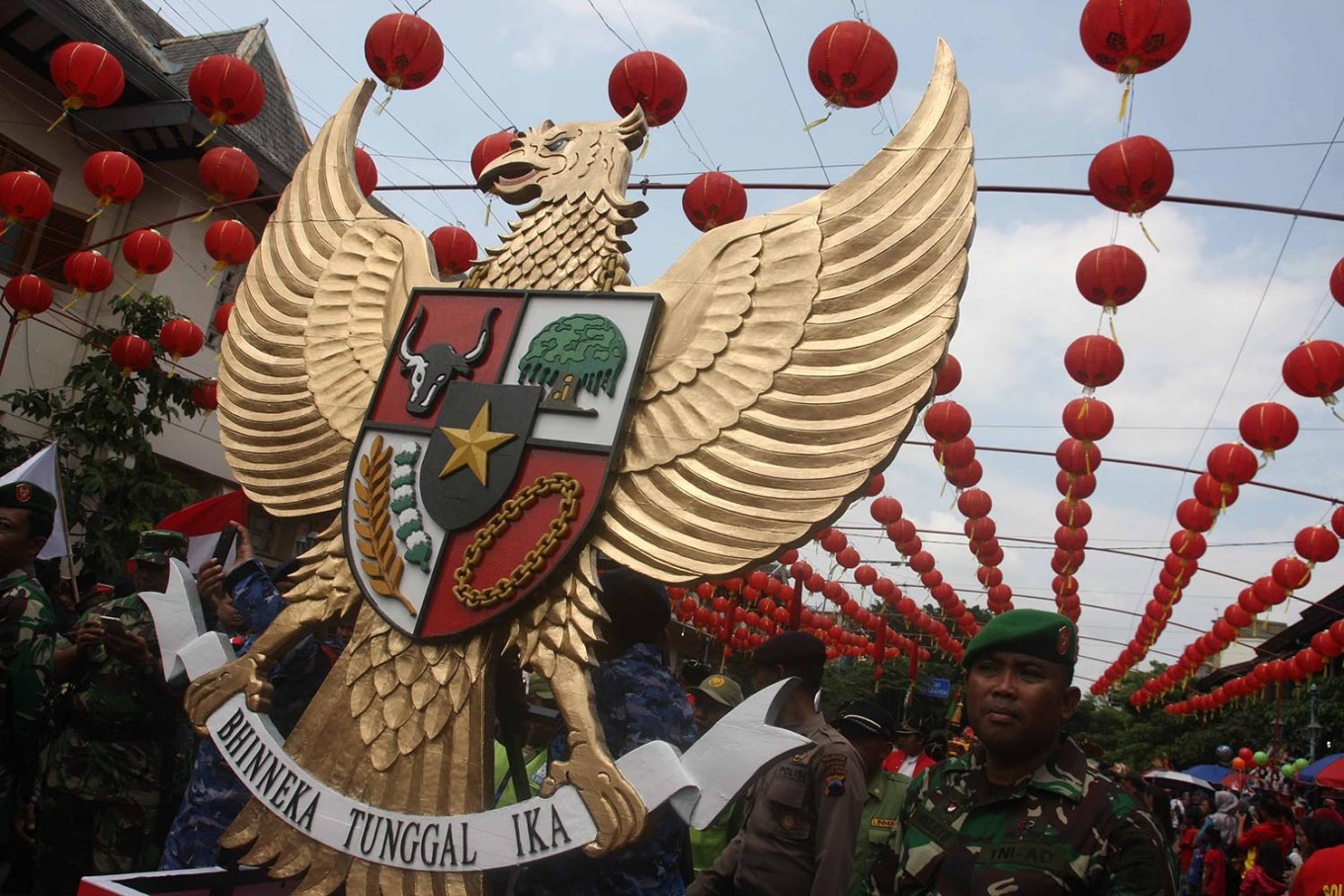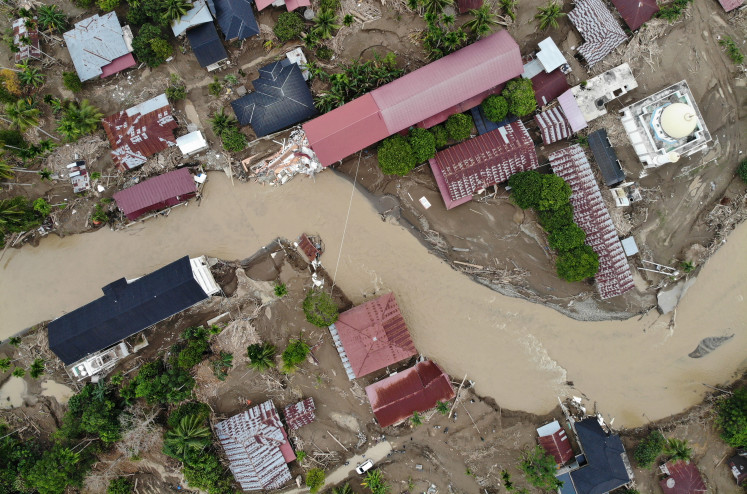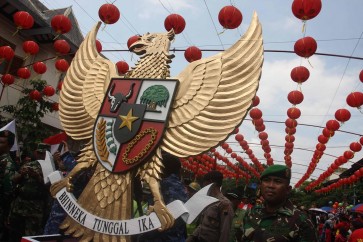Popular Reads
Top Results
Can't find what you're looking for?
View all search resultsPopular Reads
Top Results
Can't find what you're looking for?
View all search resultsIslamists’ appropriation of Pancasila
Change text size
Gift Premium Articles
to Anyone
I
followed the recent debate about the first principle of Pancasila in the ongoing presidential race with a mix of grin and dissatisfaction. Grin, for the continual collision between progressives and conservatives; dissatisfaction because the conventional explanation about the Islamists’ outlook is frequently echoed when such controversy happens.
Aziz A. Fachrudin’s recent opinion (The Jakarta Post, Feb. 15) is part of the progressive inclination to warn of Islamist interpretations of Pancasila in both the incumbent’s and challenger’s camps. However, repeated warnings in the last decades seem inadequate in questioning the Islamists’ appropriation of Pancasila and this nation state.
Most Islamists believe their struggle for formalizing the sharia and controlling society is a pious act. When progressives criticize them as deploying conservative, intolerant readings of Islam and hijacking state ideology and democracy, they paradoxically feel more confident. Accordingly, they imagine defending Islam and the nation against secular liberals.
The Prosperous Justice Party (PKS), an Islamic party supporting Prabowo Subianto, and the United Development Party (PPP), an Islamic party supporting President Joko “Jokowi” Widodo, share the same tone with the Islam Defenders Front (FPI) in accusing the Indonesian Solidarity Party (PSI), part of Jokowi’s coalition, of not understanding Pancasila and of stimulating a vitriolic reaction from Muslim communities by promoting the prohibition of polygamy for state officials and sharia-inspired bylaws.
The major explanations highlight Islamists’ divergence from our expected democracy and religious freedom. However, while Islamic concepts and practices are part of the story, we must uncover the underbelly of our political and legal system that makes the mushrooming of Islamists’ views possible.
The attempt to understand the Islamists’ reasoning of Pancasila is important. Yet one should ask, what were the conditions that enabled and constrained such reasoning? With this, we may counter such Islamists’ outlook adequately.
When we listen to the Islamists’ rhetoric of Pancasila, we will find them adopting modern modes of thought. The FPI’s call for NKRI Bersyariah (the Unitary State of the Republic of Indonesia with sharia) is based on national ideology and constitutional claims in proposing to exclude minorities that are accused as national enemies and to keep Muslims from committing acts deemed morally sinful.


















